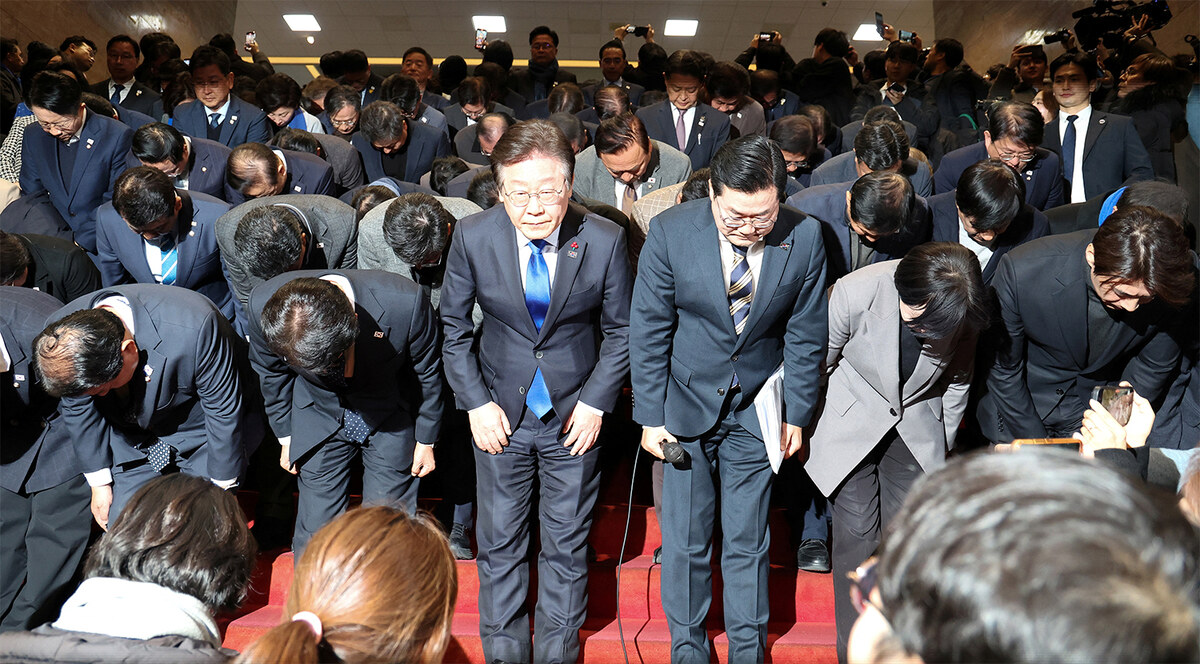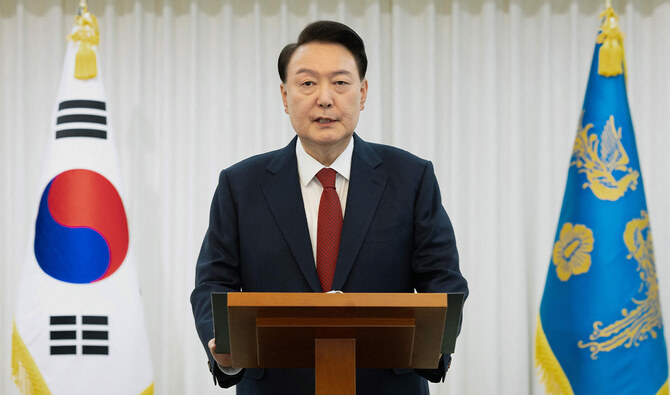Seoul: South Korean lawmakers on Saturday impeached President Yoon Suk Yeol over his failed martial law bid, with the opposition declaring a “victory of the people.”
The vote capped over a week of intense political drama in the democratic South following Yoon’s failed attempt to impose martial law on December 3.
Hundreds of thousands of people took to the streets of the capital Seoul in rival rallies for and against Yoon on Saturday.
In a televised address following the parliamentary vote, the impeached Yoon said he would “step aside” but did not apologize for his botched bid to impose martial law.
Out of 300 lawmakers, 204 voted to impeach the president on allegations of insurrection while 85 voted against.
Three abstained, with eight votes nullified.
With the impeachment, Yoon has been suspended from office while South Korea’s Constitutional Court deliberates on the vote.
The court has 180 days to rule on Yoon’s future.
Chief Justice Moon Hyung-bae vowed to hold “a swift and fair trial.”
If the court backs his removal, Yoon will become the second president in South Korean history to be successfully impeached.
Prime Minister Han Duck-soo — now the nation’s interim leader — told reporters he would “devote all my strength and efforts to ensure stable governance.”
Two hundred votes were needed for the impeachment to pass, and opposition lawmakers needed to convince at least eight parliamentarians from Yoon’s conservative People Power Party (PPP) to switch sides.
“Today’s impeachment is the great victory of the people,” opposition Democratic Party floor leader Park Chan-dae said following the vote.

Lee Jae-myung, leader of the main opposition Democratic Party and lawmakers of the party bow after the South Korean parliament passed a second impeachment motion against President Yoon Suk Yeol, at the National Assembly in Seoul, South Korea, December 14, 2024. (Yonhap via REUTERS)
PPP lawmaker Kim Sang-wook told broadcaster JTBC that Yoon had “completely betrayed the values of conservatism.”
“That is why we, as ruling party lawmakers, have decided to remove him ourselves,” he said.
A Seoul police official told AFP at least 200,000 people had massed outside parliament in support of removing the president.
Choi Jung-ha, 52, danced in the street after the vote.
“Isn’t it amazing that we, the people, have pulled this off together?” she told AFP.
“I am 100 percent certain the Constitutional Court will side with the impeachment.”
On the other side of Seoul near Gwanghwamun square, police estimated 30,000 had rallied in support of Yoon, blasting patriotic songs and waving South Korean and American flags.
“Yoon had no choice but to declare martial law. I approve of every decision he has made as president,” supporter Choi Hee-sun, 62, told AFP before the vote.
The Democratic Party said ahead of the vote that impeachment was the “only way” to “safeguard the Constitution, the rule of law, democracy and South Korea’s future.”
“We can no longer endure Yoon’s madness,” spokeswoman Hwang Jung-a said.
At the rally outside parliament supporting impeachment, volunteers gave out free hand warmers on Saturday morning to fight the subzero temperatures, as well as coffee and food.
K-pop singer Yuri of the band Girls’ Generation — whose song “Into the New World” has become a protest anthem — said she had prepaid for food for fans attending the demonstration.
“Stay safe and take care of your health!” she said on a superfan chat platform.
One protester said she had rented a bus so parents at the rally would have a place to change diapers and feed their babies.
Another said they had initially planned to spend their Saturday hiking.
“But I came here instead to support my fellow citizens,” Kim Deuk-yun, 58, told AFP.
Yoon’s future will now be determined by the court, which has previously blocked an impeachment.
In 2004, then-president Roh Moo-hyun was removed by parliament for alleged election law violations and incompetence, but the Constitutional Court later reinstated him.
The court currently only has six judges, meaning their decision must be unanimous.
Following Saturday’s vote, parliament speaker Woo Won-shik said the National Assembly would seek to nominate three more judges to the court as soon as possible.
“The future of South Korea lies within its people,” he said.
Yoon remained unapologetic and defiant as the fallout from his disastrous martial law declaration deepened and an investigation into his inner circle has widened.
His approval rating — never very high — plummeted to 11 percent, according to a Gallup Korea poll released Friday.
The same poll showed that 75 percent supported his impeachment.
Following Yoon’s impeachment on Saturday, a spokeswoman for the European Union called for a “swift and orderly resolution” to the political crisis in South Korea in line with the country’s constitution.


























